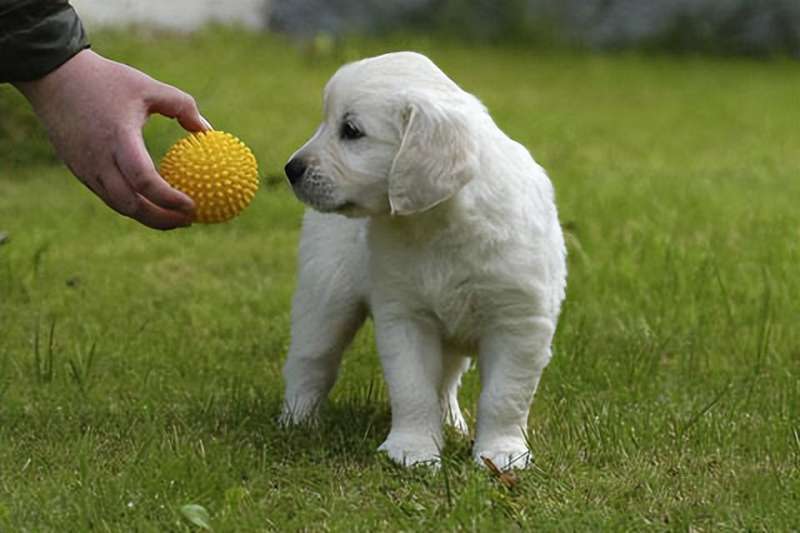Raising a puppy can be both rewarding and challenging, especially for new pet owners. Understanding how to care for your dog during its formative months is essential to ensure a healthy and happy life. This guide provides practical advice for caring for your puppy from 0 to 12 months, based on insights from veterinarians. Let’s dive into each month and what you should focus on.

1 Month Old: Establishing a Healthy Environment
Key Points:
- Clean Living Environment: It’s crucial to maintain cleanliness in your puppy’s living area to prevent bacterial infections. Regularly wash bedding and sanitize their space.
- Feeding: At this age, your puppy should primarily consume its mother’s milk. If the mother is unavailable, use high-quality puppy milk replacer, such as goat’s milk formula.
- Warmth: Puppies are unable to regulate their body temperature well, so ensure they are kept warm and cozy.
- Essential Supplies: Prepare puppy milk replacer, feeding bottles, a comfortable dog bed, and puppy pads for bathroom training.

2 Months Old: Introducing Routine
Key Points:
- Feeding Schedule: Establish a regular feeding routine, offering small, frequent meals throughout the day.
- Basic Training: Start teaching your puppy simple commands and where to go to the bathroom. Consistency is key!
- Vaccination and Deworming: Begin deworming at six weeks and ensure vaccinations are started by seven weeks.
- Monitor Health: Keep an eye on your puppy’s stool to ensure it’s healthy, adjusting diet as necessary.
- Introduction to Solid Food: Start introducing softened puppy kibble mixed with puppy milk replacer.
3 Months Old: Continued Health and Socialization
Key Points:
- Vaccination Schedule: At ten weeks, administer the second round of vaccinations. The series typically includes three vaccines, with the last one being rabies.
- Deworming: Continue with monthly deworming for both internal and external parasites.
- Bathing Restrictions: Avoid bathing your puppy until the vaccination series is complete to prevent exposure to illness.
- Transition to Dry Food: Your puppy can begin eating dry food, maintaining small, frequent meals.
4 Months Old: Nutrition and Exploration
Key Points:
- Nutritional Needs: Puppies grow rapidly; ensure they receive a balanced diet rich in essential nutrients.
- Toys for Play: Provide a variety of toys to help your puppy adjust and to prevent boredom.
- Vaccination Completion: After completing the vaccination series, schedule a rabies vaccination and a titer test if recommended.
- Supervision: Puppies are curious and may explore their environment. Supervise them closely to avoid accidents.
- Behavior Training: This is a critical time for establishing good behaviors; reinforce positive actions with rewards.

5 Months Old: Dental Care and Training
Key Points:
- Dental Hygiene: As puppies begin to lose their baby teeth, incorporate regular tooth brushing to promote oral health.
- Continued Training: Ongoing training is crucial during this developmental stage. Use positive reinforcement methods to teach commands.
- Grooming: You can start bathing your puppy regularly. Ensure to use dog-safe shampoos and avoid getting water in their ears.
6 Months Old: Growing Independence
Key Points:
- Increased Appetite: As your puppy’s appetite grows, be cautious of overfeeding. Follow feeding guidelines based on their weight and breed.
- Diet Regulation: Establish a structured feeding schedule to help regulate digestion.
- Meat Introduction: Gradually introduce meat into their diet, alternating between wet and dry food.
- Sun Exposure: Ensure your puppy gets adequate sunlight, which helps with calcium absorption.
7 Months Old: Behavior Changes
Key Points:
- Behavioral Changes: Many puppies begin their first heat cycle or may show signs of becoming more territorial. Adjust training and supervision accordingly.
- Prevent Escaping: Male dogs should be monitored to prevent roaming; female dogs should wear protective garments during their first heat.
- Exercise Needs: Increase exercise to help manage their energy levels and alleviate any behavioral issues.
- Cleaning Supplies: Regularly clean and disinfect their belongings to maintain hygiene.

8 Months Old: Health and Nutrition
Key Points:
- Hydration: Ensure your puppy is drinking enough water to prevent urinary tract issues. Carry portable water bottles during walks.
- Fruits and Vegetables: Introduce safe fruits and vegetables into their diet for a balanced nutrition.
- Consistent Feeding: Stick to a regular feeding schedule, monitoring portion sizes for healthy growth.
- Tooth Health: By this age, teething should be complete. Offer chew toys to alleviate any lingering discomfort.
9 Months Old: Grooming and Nutritional Balance
Key Points:
- Shedding Season: Your puppy may begin to shed, so regular brushing can help manage loose fur.
- Diet Adjustments: Opt for highly nutritious, digestible foods to support ongoing bone and muscle development.
- Behavioral Monitoring: By now, your puppy’s behavior should stabilize as they approach maturity.
10 Months Old: Socialization and Exercise
Key Points:
- Socialization Opportunities: Continue exposing your puppy to new environments, people, and animals to ensure they develop good social skills.
- Physical Activity: Provide ample space and opportunities for exercise, which is vital for a dog’s physical and mental health.
- Calcium Supplementation: Maintain calcium supplementation, especially for smaller breeds until one year of age and larger breeds until 18 months.

11 Months Old: Final Preparations for Adulthood
Key Points:
- Hygiene Maintenance: Ensure that your puppy’s living conditions and diet remain clean and healthy.
- Behavioral Corrections: Address any bad habits, such as food guarding, promptly to prevent them from becoming entrenched.
- Training Reinforcement: Spend quality time training and bonding with your puppy to strengthen your relationship.
12 Months Old: Transitioning to Adulthood
Key Points:
- Physical Development: At this stage, your puppy will have reached its full size and appearance, establishing its adult form.
- Bathing Routine: Continue regular baths, typically every 2-3 weeks, along with nail trimming and grooming.
- Annual Check-Ups: Schedule yearly veterinary visits to monitor your dog’s health.
- Diet Transition: Move to adult dog food that meets their nutritional needs. Look for high-quality brands that support overall health.
Conclusion: Your Puppy’s Journey
Caring for a puppy from 0 to 12 months is a crucial time that shapes their future health and behavior. With this comprehensive guide, you can confidently navigate the responsibilities of puppy ownership. By focusing on proper nutrition, training, hygiene, and regular veterinary care, you’re setting your furry friend up for a happy and healthy life.
So, how old is your puppy now, and what are your favorite moments in their growth journey? Share your experiences and let’s celebrate the joy of puppy parenting!

Comments (0)